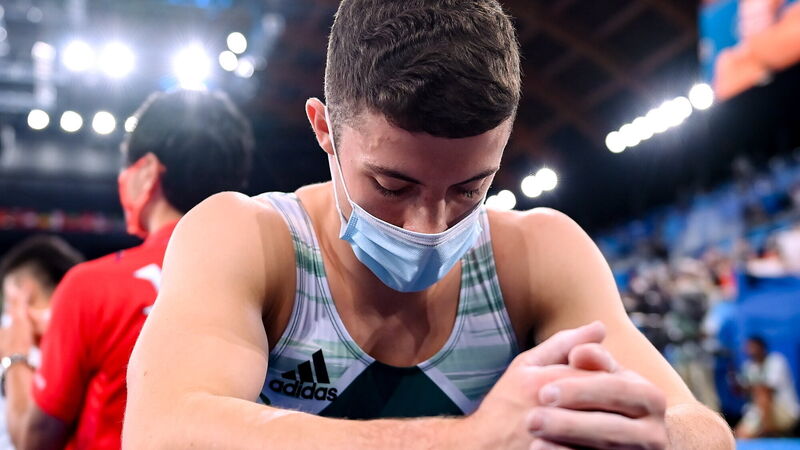Eimear Ryan: Sport is rewarding precisely because it’s so hard and disappointing

Rhys McClenaghan reacts following his performance in the men's pommel horse final at the Ariake Gymnastics Centre during the 2020 Tokyo Summer Olympics. A misplaced finger ended his medal chances. Picture: Stephen McCarthy/Sportsfile
I've been thinking a lot lately about losing, or maybe more accurately, about the ratio of success to failure in the sporting life. Maybe it’s because I’m working on a long project about sport and reflecting on my own career; maybe it’s also because I’m about to turn 35 and know that my viable seasons are numbered.
When you think about it — what a rare thing victory is. That’s part of what makes it precious, of course. I’ve won plenty of matches in my time but few titles, since it only takes one loss to derail a campaign. Statistically speaking, it’s true for most players that you will lose more years than you win (unless you play your club football with Carnacon, or your inter-county with Dublin). And yet we keep coming back, year after year.









